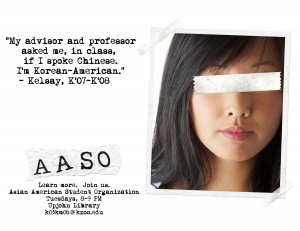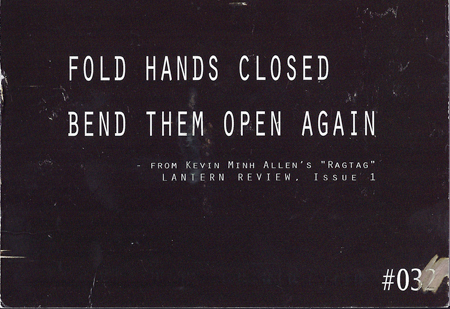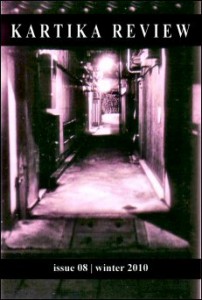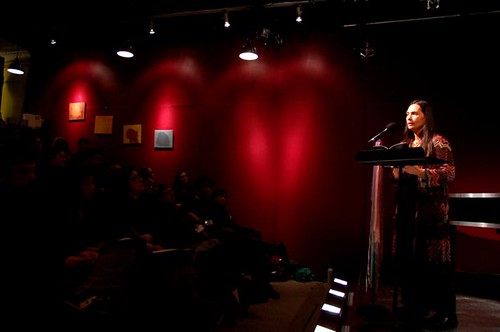
It’s been a little over a month now since AWP 2011 in Washington DC — and this post is more than a little overdue! Nonetheless, here it is: our reflection on the very first gathering of Lantern Review contributors, readers, and editors. Our off-site reading, co-hosted by Boxcar Poetry Review “in celebration of the little online magazine,” took place on Friday, February 4th at Go Mama Go!, a lovely, eclectic art supply & gift shop (ceramics, antique soda bottles, shot glasses, bright paper umbrellas) whose owner greeted us with a warm, “Are you here for the Chinese poetry?” when we first walked into the door. “Well… yes?” we said, though really we were there for so much more.
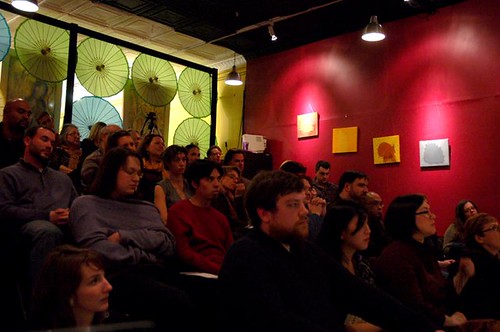
Realizing that a gathering of people interested in Asian American poetry could perhaps be mistaken for enthusiasts of Chinese verse, we decided that this was an appropriate place for our reading to begin: with an assumption that would, as the night progressed, be stretched and proliferated across a variety of subjects, styles, personalities, and identities. We heard from lovers, from daughters and sons, from fighters and artists, ethnic selves, queer selves, and — at times — just plain selves confronted with the complex reality of living in the twenty-first century.
We had the pleasure of hearing seven different Lantern Review contributors, all of whom read poems published in either Issue 1 or Issue 2 alongside other pieces prepared for the event. Though most of us had never met before, there was a wonderful camaraderie in the room — after tipping the microphone down a few inches, Issue 2 contributor Kathleen Hellen joked that, being a little-ish person, she loved little-ish poems and planned to share a few with us.
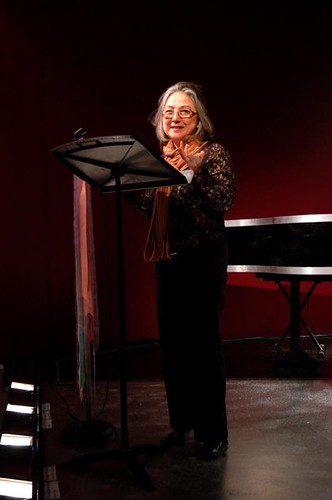
Contributor Rajiv Mohabir impressed us with his unexplained passion for whales, even pulling off his fleece to show the back of his t-shirt. Sure enough: whale.
To be perfectly honest, in preparing for this event I had no idea what — or who, rather — to expect. Sure, we had a list of readers and printed programs, but in curating the poems for our two issues, I’d developed certain notions of “who” our contributors were: Poet X, author of Poem Y, was surely this kind of person, or at least that’s what I thought after spending so much time with their persona on the page. But would I be proved mistaken when I met them in real life?
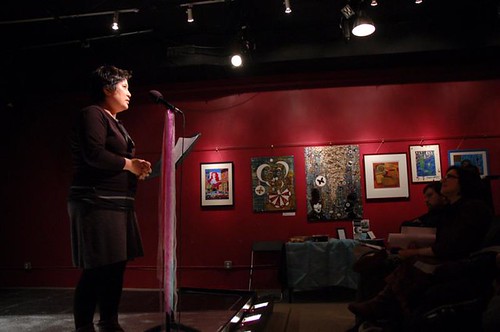
Seeing the men and women “behind the issues,” however, playing the wonderful game of matching poet face to poetic voice, was a fabulous experience. At this event, a community that had previously existed only as a textual (and virtual!) reality became, for the first time, embodied in flesh: jeans and scarves, breath and lungs and vocal chords. Hearing these contributors’ voices for the first time, particularly when each poet read their LR piece, was phenomenal. Personas that previously existed only as textual markings on a computer screen became live presences, embodied on stage before our very eyes.
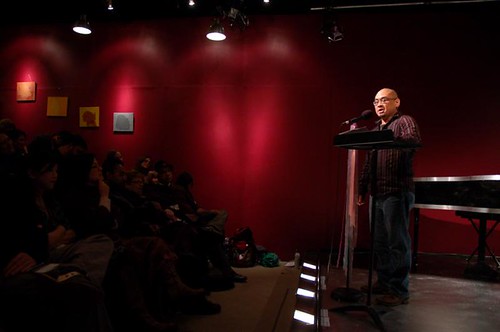
This could be an overreaction — the online magazine, and indeed the publishing world itself, has been around a long time, and “meeting your editor/contributors for the first time” is terribly old news. For us, however, newly minted and only in our second year, the event was a wonderful success. A true celebration of the little online magazine. We’re grateful to our contributors, particularly those who were there with us at Go Mama Go! on the 4th, and to all the other readers and writers who make this virtual and literary community a living network of flesh-and-bone people around the nation. Thank you for your support, and for joining us in exploring the open-ended question of Asian American poetry.
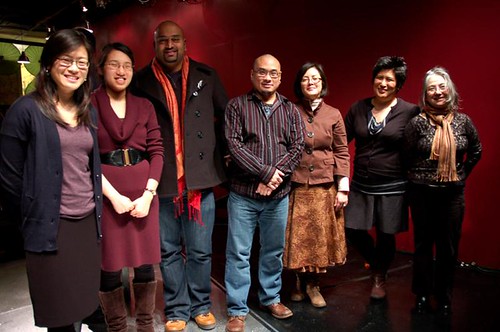
Also, thanks to Iris’ foresight and inner documentary filmmaker, you can hear clips of their readings below:
Continue reading “Event Coverage: AWP 2011 Off-Site Reading”


